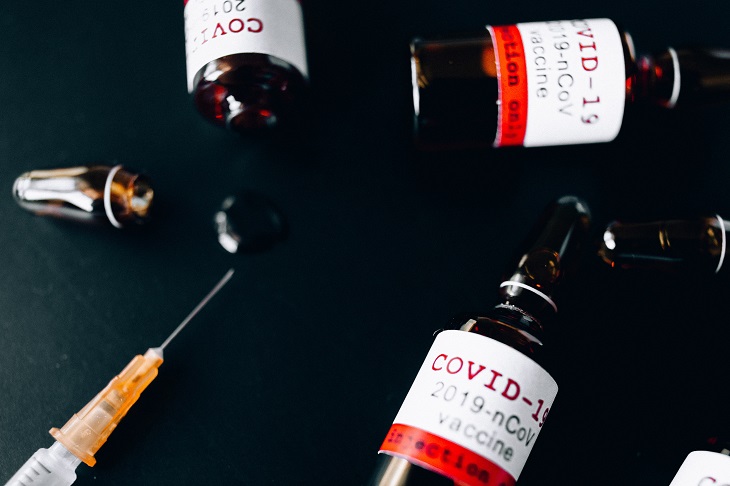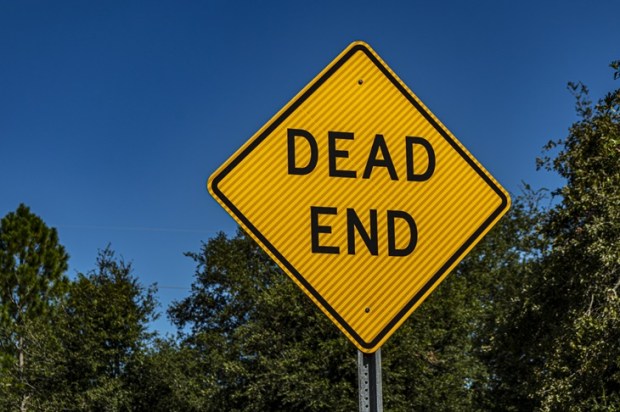No experience is wasted if we learn from it, and in the time of Covid many of us were pushed to think long and hard about health, disease, and the modern medical system.
Generally taking a holistic approach – with full appreciation for the impressive skills in crisis, trauma, and surgical medicine – I was used to questioning medical advice. In the time of Covid that became even more important, particularly as events have played out over the years regarding the official narrative. Experts have changed their minds on many counts and that which has been dismissed as a conspiracy theory has later revealed itself as truth.
Many of the responses to Covid have arisen because modern medicine tends to be materialist, reductionist, and mechanistic. It is also largely profit-driven. The system has been allowed to play out this way in part due to doctors failing to ask necessary questions and defend their basic ethic to ‘do no harm’.
It reminds me of painting by numbers, a process that can produce appealing results but which will never deliver the best of the artistic medium. The same applies to much of the modern medicine provided by GPs. I thought about this again in recent months when accompanying someone else on a process of stroke recovery.
Perhaps most frustrating part was realising the ‘chase for disease’ was sourced in numbers and generic levels in the main. In other words, it was ‘disease by numbers’ for ‘medicine by numbers’. At some point, it is easy to suspect that some of this is not about the patient, but rather the doctor and their employees seeking to cover their bases with a brute-force approach to medicine to avoid being sued for missing the real cause.
It is remarkable how many ‘diseases’ can be found in a person when generic numbers are applied to the patient ‘picture’. Even more may be found in the ‘potential’ category, which would be like ‘drawing outside of the lines’ except that allopathic or conventional medicine ‘moves the lines’ when necessary. ‘Moving the lines’ in medicine happened during Covid, when treatments that competed with vaccines were shunted into the ‘unsafe’ category for no apparent reason.
This is also what happened to blood pressure readings where, a few decades ago, the doctor would consider your age plus 100 to be a suitable Systolic reading, which is the pressure in your arteries when the heartbeat is measured. But the downward trend took hold.
Today, the recommended ‘numbers’ are 120/80, pretty much regardless of whether you are 90 or 19, which seems very unscientific and even less sensible. However, because of the new directives, there are millions more people who can be ‘painted’ as sick and prescribed medication to lower their blood pressure to fit the new rule.
It does not stop there. Take cholesterol levels. They have also changed to make it possible for more and more people to be prescribed medication. The wunderkind pill on the numbers block is popped daily by 200 million people worldwide. This is already a $US 1 trillion industry. In terms of profit, the numbers stack up, but is this consumption necessary or effective? Is it safe (since cholesterol is critical for myelin sheath integrity and performs other vital physiological functions)?
It is unusual, if not rare, for someone to have a family doctor who has known them and their family for generations. Times have changed and medical clinics, often called health centres, are typically franchised. Patients are processed for optimum productivity for the clinic and seeing a different doctor every time is not uncommon. Would we be happy with our lawyer or accountant if they only allowed 15-30 minutes to work with us on our problems which don’t generally involve life or death issues?
In a frequently impressive technological world, GPs no longer have the ability or the time to diagnose without tests. They routinely have little to no knowledge of their patient in a personal sense, and rely on generic testing.
Preventative medicine is profitable medicine, regardless of outcomes.
Generic means a one size fits all approach, but the human condition does not work like that because every human is unique, genetically, biologically, physiologically, psychologically, and in terms of how we live our lives. GPs who do not correctly weight external and individual facts against the results are going to find their predictions blurry at best.
The difference between ‘painting by numbers’ and ‘medicine by numbers’ is that the former does no harm and the latter has the potential to do a great deal of harm. We saw some of the worst effects in the Covid years where government actions were sourced in ‘modelling’, the poorest science, which originally and mistakenly predicted that millions would die from the virus. Even more number-crunching went into seeking to validate the use of hastily created vaccines. The number-crunching continues in the name of boosters, despite clear evidence of the dangers and data showing little or no efficacy.
Covid didn’t create the problematic system, it exploited it. The mindset made the madness possible.
We have to be careful because the types of medicines we use are changing with the advances in technology. Some of them border on the ‘experimental’. Others have been manipulated in ways made impossible by nature – such as genetically altered vaccines. These advances can be a good thing, but one can always have too much of a good thing. And while medical knowledge has grown enormously in the past century, there are plenty of things we cannot predict – such as how a new medicine will react to a unique human body.
With a sharp leap toward synthesised medicine, no doctor can fully understand how each medication is made, what it contains, what it is designed to do, or predict all of its side effects.
There was a time, according to a German cardiac surgeon and author of, The Beat of Life, when doctors could diagnose many diseases by simply taking a pulse. Those skills are lost, where, with any luck, the doctor never needs to touch the patient. It makes everything much faster when doctors don’t have to waste time learning such skills. But does it make medicine better?
The gap in knowledge displayed by GPs is not their fault. There are thousands of drugs, more than 15,000 to be precise, and the majority, around 70 per cent, have between 10-100 potential side-effects, some common, some rare, all possible. It is not unusual for people to be on three or four different medications, sometimes as many as a dozen if they are older, which means a heady total of somewhere between 400 or 1,200 potential side effects.
It is impossible for a GP today to be on top of all medications and no doubt that is why the recourse is to certain drugs time and again. Or perhaps there are recommendations, or even pressure from pharmaceutical companies and whoever owns the clinic as to what drugs are preferred for prescription.
We learned about the mechanism of pharmaceutical agents and how they were intended to work. That made sense.
But what about all of the known side effects? We could explain some but not all of them. We could explain why a given drug helped a person, but we really didn’t have an explanation why the same drug failed another. It wasn’t a big issue practically. There was almost always another medicine that we could try.
But to me it spoke volumes of how much we didn’t know.
– Quoted from, Why Listen to an Anaesthesiologist in the Middle of a Pandemic?
Of course, there are GPs out there who care and who want to do and be the best that they can. For that to happen more patients must take more responsibility and be prepared to ask questions, expect answers, and do their own research. Otherwise, we just end up with mediocre medicine in the same way that ‘painting by numbers’ must by its nature produce mediocre art. The difference is that mediocre art might make you feel a bit sick but mediocre medicine can actually make you sick and possibly kill you.
Got something to add? Join the discussion and comment below.
Get 10 issues for just $10
Subscribe to The Spectator Australia today for the next 10 magazine issues, plus full online access, for just $10.


























Comments
Don't miss out
Join the conversation with other Spectator Australia readers. Subscribe to leave a comment.
SUBSCRIBEAlready a subscriber? Log in